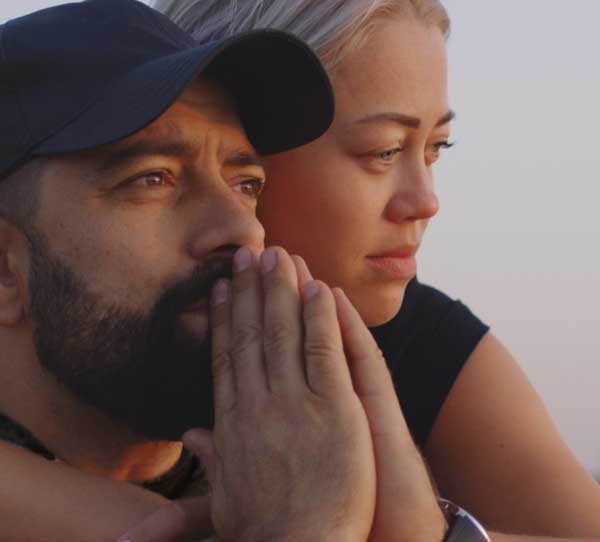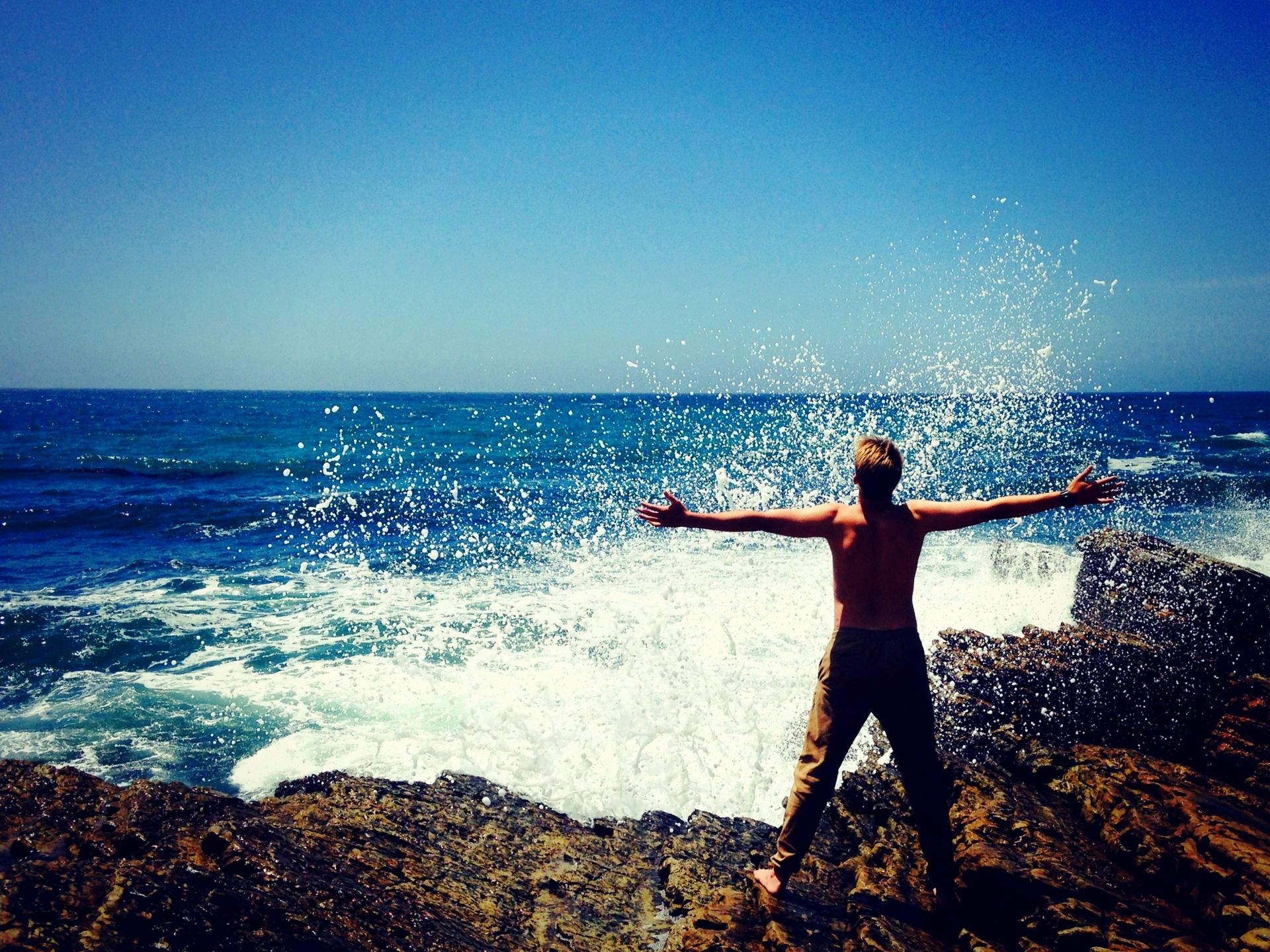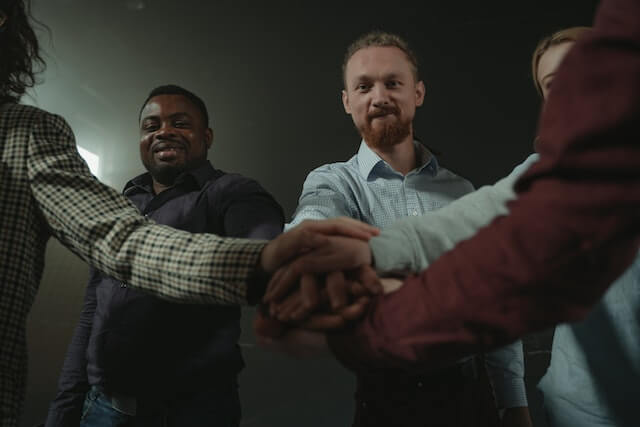
Surfside Sober Living Alumni Marcus Shares What Sober Living Life Looks Like
Throughout the entirety of COVID-19, sober living homes in New Jersey have encountered an entirely different set of challenges while helping residents achieve long term recovery. In addition to the commonplace issues of early recovery, residents in sober living face the new reality of social distancing, unemployment, and isolation. Unfortunately, the state of New Jersey, along with others, have seen a rise in fatal overdoses throughout the dog-day months of COVID-19. In the midst of the chaos, you know that we enjoy sharing stories of recovery, and most importantly… hope. What better time to enjoy another sober living alumni story from Surfside?
In this month’s edition of the Surfside Alumni Spotlight, we celebrate the recovery journey of Marcus I., who like many of Surfside’s residents, found deeper and deeper bottoms before finding recovery. Interestingly enough, Marcus had his struggles after graduating from the program, but ultimately, with his back against the wall, Surfside helped him in a way he would never expect. Enjoy!
Sober Living Recovery Story
Marcus grew up in a small, close-knit beach town in Cape May County, New Jersey where familiar faces flooded the streets. And when we say, close knit, we mean that Marcus spent his elementary and middle school years with the same 10 classmates. Everyone grew up together and knew about each other’s lives.
Marcus spent most of his time at his mother’s house during the week and with his father on weekends. As in many towns, dual-parent households were the status quo, so Marcus already felt different from his peers early on.
At a young age, Marcus started experimenting with alcohol and recreational drugs. It wasn’t the lucid feelings of getting high that necessarily attracted him at first… it was the lifestyle. He embraced the “non-conformity” mindset of his group of friends that regularly drank and smoked weed many years before they legally could.
Before entering high school, Marcus moved to a new town to live with his father. High school can already be a challenging time for adolescents to fit in, so making the move to a new town added increased pressure to find a group of friends.
So option number one in his mind: find the misfits.
He started smoking weed. A lot of weed. Every hour on the hour he ventured into the school bathroom for a couple of hits. He opened the windows in his bedroom for an evening toke. Every second of the day, Marcus needed to be high.
Unsurprisingly, everything else in his life started to slide into the back burner. His grades slipped drastically. He lost interest in sports. His entire existence centered around smoking weed, either with his friends or by himself.
Together with his family, Marcus decided to seek some clinical help as he noticed a significant change in his overall mental health. Throughout the process, his excessive drug and alcohol use never came up. In his mind, it had nothing to do with the way he had been feeling, so why bother mentioning it? With no real information to use, Marcus’ family and clinicians were left scratching their heads.
In a brief moment of motivation, Marcus made an unexpected turn in the right direction. He swore off the drugs and alcohol, forever! Instead of cannabis, he picked up the books. Instead of vodka, he picked up a basketball. His new healthy habits had him feeling better, and he ultimately graduated from high school and packed up for college.
Do you remember that summer right before heading off to college? From June through August, the graduating class enjoys a 3-month send off party before everyone departs for school. It didn’t matter who you were; everyone got in on the fun.
Marcus could not fathom giving up that one last ride with his friends.
He spent the summer before college back with the “misfits,” drinking all night and smoking weed all day (and night). All of those healthy habits? Gone.
Finally on a college campus, Marcus started off strong, but the party continuously pulled him back. Black outs became a regularity, and he found himself intoxicated more often than sober. And it hit him. Maybe I don’t drink like normal people.
The drinking brought arrests, consequences, and even worse… isolation. Marcus found himself alone and incredibly depressed.
He ultimately withdrew from school and returned home, where he found his place back with misfits, but the ongoing battle of depression and addiction continued to pull him downwards.
“It was the worst it had ever been. At the point, I had pretty much decided that it would never get better,” he remembers.
Now in his 20’s, Marcus’ life turned into an endless cycle of drinking, being miserable, trying not to drinking, being miserable sober, and drinking again. Throughout this entire cycle, he would see a psychiatrist regularly, but never mention that he could not stop drinking.
Over the course of a year, Marcus gets pulled over and charged with a DUI twice. He had spiraled completely out of control and made serious consideration in taking his own life.
In a final effort, Marcus’ family staged an intervention. They provided him with a choice: address the alcohol and drug abuse, or leave the family. Thankfully, he chose the former.
Like many, he was absolutely miserable in treatment. It was a nice place and all, and it had all of the resources he needed, including his first experience with Alcoholics Anonymous. But he just couldn’t imagine a life without drinking.
While sitting with his counselor, the topic of aftercare came up, and for the first time Marcus heard about Surfside. With no other option in sight, he obliged and admitted.
So, we wished the story ended happily ever after at this moment. However, recovering from addiction is no easy feat with its fair share of trials and tribulations. Marcus spent 9 months at Surfside, where he engaged with the program, became an active member in Alcoholics Anonymous, and learned to live as an independent sober man.
But there is no graduation ceremony for recovery… it is a daily reprieve that must be addressed through action. It doesn’t matter how long you have been sober, there is always work to be done.
After 9 months, feeling confident, Marcus strayed away from the program. He stopped following direction, stopped calling his sponsor, or working with the new comer. Simply put, he stopped doing the work that had gotten him to this point.
Not long after, things derailed. The obsession became too great, and Marcus picked up the drug. At first, he was confident he could manage… but as it turns out, he had absolutely no power in choosing whether to drink or not. Left to his own devices, he is going to drink and get high.
He quickly ran out of money and started stealing from his family and friends to get the next fix. Homeless and high on the streets of Atlantic City, Marcus made multiple attempts to end it all.
But one day, he woke and in a brief moment of clarity, he decided to give recovery another shot.
“I went back to the solution,” he recalls.
Marcus reconnected with Alcoholics Anonymous and the true program of recovery. None of it was uncharted waters… he had learned what to do while a resident at Surfside. He simply fell back on the simple principles that had once broken the chains of addiction. Along the way, Surfside staff and residents helped him get back on his feet, into treatment, and reconnected with the program. Although he did not return to Surfside as a resident, he did stay apart of the Surfside community, the brotherhood.
Since that one day in Atlantic City, Marcus has been a clean and sober man.
Interview with a Sober Living Alumni
What is your sobriety date?
August 3rd, 2018
What do you do for work?
I work for a roofing company. I handle the emergency services and inspections.
What are some of your hobbies?
I love surfing, working out, and cooking. Above all I just like to stay active.
What were some of your biggest concerns before coming to Surfside?
I couldn’t imagine being alive without drinking or getting high. I thought the whole thing was trying to mold me into a “vineyard vines, perfect guy,” which seemed impossible because I had been a piece of s*** for so long. I was also pretty nervous about living with a bunch of other guys I didn’t know. I’m not really social, so I wasn’t thrilled about that part. It turned out to be one of the best parts of the program- forming bonds and friendships with these guys.
What was your biggest takeaway from Surfside?
Ian, Dan, and the rest of the staff get it. They know what it’s like to be out there. They are there to help no matter what. I had never seen that before. I had never trusted anyone in my life. I didn’t think it was possible to care about me that much. Surfside truly cares about you.
How is Surfside different than the previous programs you have attended?
It’s a 12-Step recovery-based program. You have no option. In a lot of other places, you can decide if you want to do the step work. In all reality, you can just sit there and do nothing. But at Surfside, they make you get to work. That’s the critical piece to this whole recovery thing, and Surfside makes you do it.
You do the 12-Step process, you stay stuck in the cycle of addiction, or you die. It’s that simple.
What are some of the best and most challenging parts of living independently after Surfside?
The best part is I’m free to do whatever I want. I have to do certain things to stay sober and stay sane, but I have a connection to a program that allows me to go out and live a great life. I use what I learned at Surfside, and I can actually accept the challenge of facing whatever life throws at me. I get to see it at work; and that I can do anything, be anything.
In the beginning, sometimes you can’t picture this new life. Now, I can see it for myself.
The most challenging part is keeping recovery as my number one priority. Often, I can be challenged by external things, like money. It can be real easy to get caught up in the obsession of money, work, and more money. I can quickly forget that this is not what’s most important.
Now that you are out of the program, how do you stay involved with Surfside and your recovery?
I live like four houses away from Surfside, which is super convenient. I’m right around the corner. I live in a community with a bunch of other Surfside alumni, and I see all of them constantly. I’m able to keep relationships while making new ones with the guys in the house. I also sponsor a guy in the house and enjoy taking him out to show him what life can be like. It meant a lot to me when the guys did it for me, so I’m going to continue doing it for them.
Any final thoughts on Surfside?
I didn’t have many options. I’ve seen people die. I’ve seen people relapse. Surfside knows that the 12-Steps are the answer. You have to do the work. Surfside doesn’t let people fail. They are going to hand you the solution on a silver plate. They provide you with everything you need so that you can go from nothing, to something great. All you need to do is take it.
What is your 5-year plan?
I’m taking it one day at a time, my man.
Well said, Marcus. We could not be more proud of the man Marcus has become. Even more so, we are so proud of the way he handled himself when things went south after Surfside. He didn’t reinvent the wheel… he got back to work. Keep it up, Marcus!
As always, if you or a loved one are struggling, please do not hesitate to reach out. Our Executive Director is ready to help point you in the right direction for proper treatment services.




